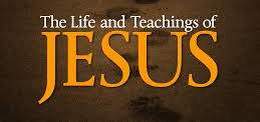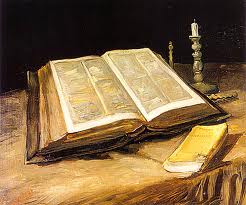Mary Magdalene
in the Visions of Anne Catherine Emmerich
“Mary therefore took a pound of ointment of right spikenard, of great price, and anointed the feet of Jesus, and wiped his feet with her hair, and the house was filled with the odour of the ointment.” —John 12:3
“Mary hath chosen the best part, which shall not be taken away from her.” —Luke 10:42
“And when Jesus was in Bethania, in the house of Simon the leper, there came to him a woman having an alabaster box of precious ointment, and poured it on his head as he was at table. And the disciples seeing it, had indignation, saying: To what purpose is this waste? For this might have been sold for much, and given to the poor. And Jesus knowing it, said to them: Why do you trouble this woman? for she hath wrought a good work upon me. For the poor you have always with you: but me you have not always. For she in pouring this ointment upon my body, hath done it for my burial. “Amen I say to you, wheresoever this gospel shall be preached in the whole world, that also which she hath done, shall be told for a memory of her.” —Matthew 26:10-13
“And on the first day of the week, Mary Magdalen cometh early, when it was yet dark, unto the sepulchre; and she saw the stone taken away from the sepulchre...Jesus saith to her: Woman, why weepest thou? whom seekest thou? She, thinking that it was the gardener, saith to him: Sir, if thou hast taken him hence, tell me where thou hast laid him, and I will take him away. Jesus saith to her: Mary. She turning, saith to him: Rabboni (which is to say, Master).” —John 20:1, 15-16
1. The Family of Lazarus, Martha and Magdalen
The parents of Lazarus had in all fifteen children, of whom six died young. Of the nine that survived, only four were living at the time of Christ’s teaching. These four were: Lazarus; Martha, about two years younger; Mary, looked upon as a simpleton, two years younger than Martha; and Mary Magdalen, five years younger than the simpleton. The simpleton is not named in Scripture, not reckoned among the Lazarus family; but she is known to God. She was always put aside in her family, and lived altogether unknown...Lazarus ...looked much older than Jesus; he appeared to me to be fully eight years His senior. Lazarus had large possessions, landed property, gardens, and many servants. Martha had her own house, and another sister named Mary, who lived entirely alone, had also her separate dwelling. Magdalen lived in her castle at Magdalum. Lazarus was already long acquainted with the Holy Family. He had at an early period aided Joseph and Mary with large alms and, from first to last, did much for the Community. The purse that Judas carried and all the early expenses, he supplied out of his own wealth...The father of Lazarus was named Zarah, or Zerah, and was of very noble Egyptian descent. He had dwelt in Syria, on the confines of Arabia, where he held a position under the Syrian king; but for services rendered in war, he received from the Roman emperor property near Jerusalem and in Galilee. He was like a prince, and was very rich. He had acquired still greater wealth by his wife Jezabel, a Jewess of the sect of the Pharisees. He became a Jew, and was pious and strict according to the Pharisaical laws. He owned part of the city on Mount Zion, on the side upon which the brook near the height on which the Temple stands, flows through the ravine. But the greater part of this property, he had bequeathed to the Temple, retaining, however, in his family some ancient privilege on its account. This property was on the road by which the Apostles went up to the Cenacle, but the Cenacle itself formed no longer a part of it. Zarah’s castle in Bethania was very large. It had numerous gardens, terraces, and fountains, and was surrounded by double ditches. The prophecies of Anna and Simeon were known to the family of Zarah, who were waiting for the Messiah. Even in Jesus’ youth, they were acquainted with the Holy Family, just as pious, noble people are wont to be with their humble, devout neighbors. (Vol. 1, pp. 334-335)
2. Magdalen’s Childhood
Magdalen, the youngest child, was very beautiful and, even in her early years, tall and well-developed like a girl of more advanced age. She was full of frivolity and seductive art. Her parents died when she was only seven years old. She had no great love for them even from her earliest age, on account of their severe fasts. Even as a child, she was vain beyond expression, given to petty thefts, proud, self-willed, and a lover of pleasure. She was never faithful, but clung to whatever flattered her the most. She was, therefore, extravagant in her pity when her sensitive compassion was aroused, and kind and condescending to all that appealed to her senses by some external show. Her mother had had some share in Magdalen’s faulty education, and that sympathetic softness the child had inherited from her. Magdalen was spoiled by her mother and her nurse. They showed her off everywhere, caused her cleverness and pretty little ways to be admired, and sat much with her dressed up at the window. That window-sitting was the chief cause of her ruin. I saw her at the window and on the terraces of the house upon a magnificent seat of carpets and cushions, where she could be seen in all her splendor from the street. She used to steal sweetmeats, and take them to other children in the garden of the castle. Even in her ninth year she was engaged in love affairs. With her developing talents and beauty, increased also the talk and admiration they excited. She had crowds of companions. She was taught, and she wrote love verses on little rolls of parchment. I saw her while so engaged counting on her fingers. She sent these verses around, and exchanged them with her lovers. Her fame spread on all sides, and she was exceedingly admired. But I never saw that she either really loved or was loved. It was all, on her part at least, vanity, frivolity, self adoration, and confidence in her own beauty. I saw her a scandal to her brother and sisters whom she despised and of whom she was ashamed on account of their simple life. (Vol. 1, pp. 335-336)
3. Magdalen Inherits the Castle of Magdalum
When the patrimony was divided, the castle of Magdalum fell by lot to Magdalen. It was a very beautiful building. Magdalen had often gone there with her family when she was a very young child, and she had always entertained a special preference for it. She was only about eleven years old when, with a large household of servants, men and maids, she retired thither and set up a splendid establishment for herself. Magdalum was a fortified place, consisting of several castles, public buildings and large squares of groves and gardens. It was eight hours east of Nazareth, about three from Capharnaum, one and a half from Bethsaida toward the south, and about a mile from the Lake of Genesareth. It was built on a slope of the mountain and extended down into the valley which stretches off toward the lake and around its shores. One of those castles belonged to Herod. He possessed a still larger one in the fertile region of Genesareth. Some of his soldiers were stationed in Magdalum, and they contributed their share to the general demoralization. The officers were on intimate terms with Magdalen. There were, besides the troops, about two hundred people in Magdalum, chiefly officials, master builders, and servants. The castle of Magdalum was the highest and most magnificent of all; from its roof one could see across the Sea of Galilee to the opposite shore. Five roads led to Magdalum, and on every one at one half-hour’s distance from the wellfortified place, stood a tower built over an arch. It was like a watchtower whence could be seen far into the distance. These towers had no connection with one another; they rose out of a country covered with gardens, fields, and meadows. Magdalen had men servants and maids, fields and herds, but a very disorderly household; all went to rack and ruin. (Vol. 1, pp. 336-337)
4. Magdalen’s Reputation
Sts. Zachary and Elizabeth being long since dead, St. John the Baptist has been preaching and baptizing publicly and is gaining fame and followers. Jesus has just begun His public life, but is yet to perform any miracles.* (*In most cases we have provided introductions for sections which do not follow immediately upon the preceding section. —Publisher, 2005.) Six men who were coming from the baptism of John met Jesus. Among them were Levi, known later as Matthew, and two sons of the widowed relatives of Elizabeth. They all knew Jesus, some through relationship, others by hearsay; and they strongly suspected, though they had had no assurance of it, that He was the One of whom John had spoken. They spoke of John, of Lazarus and his sisters, especially of Magdalen. They supposed she had a devil, for she was already living apart from her family in the castle of Magdalum. These men accompanied Jesus, and were filled with astonishment at His discourse. The aspirants to baptism going from Galilee to John used to tell him all that they knew and heard of Jesus, while they that came from Ainon, where John baptized, used to tell Jesus all they knew of John...Magdalen’s castle in Magdalum was not far off, and Magdalen herself was at this time at the height of her glory. (Vol. 1, pp. 342, 352)
5. Jesus Speaks of Magdalen’s Family
Lazarus had three sisters: the eldest Martha, the youngest Mary Magdalen, and one between them also called Mary. This last lived altogether secluded, her silence causing her to be looked upon as a simpleton. She went by no other name than Silent Mary. Jesus, speaking to Eliud of this family, said, “Martha is good and pious. She will, with her brother, follow Me.” Of Mary the Silent, He said, “She is possessed of great mind and understanding; but, for the good of her soul, they have been withdrawn from her. She is not for this world, therefore is she now altogether secluded from it. But she has never committed sin. If I should speak to her, she would perfectly comprehend the greatest mysteries. She will not live much longer. After her death, Lazarus and his sister Martha will follow me and devote all that they possess to the use of the Community. The youngest sister Mary has strayed from the right path, but she will return and rise to higher sanctity than Martha.” Jesus ...spoke of Lazarus by another general name, which I have forgotten. He mentioned also his father, saying that he had been in war. He said that Lazarus and his sisters were rich, and that they would devote all they had to the advancement of Redemption. (Vol. 1, pp. 374-375)
6. Martha Speaks to Jesus about Magdalen
Jesus now has a large group of followers and is on His way to the place of Baptism. He is welcomed to Martha’s castle in Bethania where she and her brother Lazarus live, along with their sister Silent Mary. No word had as yet been spoken in Jesus’ presence in reference to Magdalen, who was then living at Magdalum in the height of her grandeur...Martha spoke to Jesus of Magdalen and her own great anxiety on her account. Jesus comforted her, telling her that Magdalen would certainly be converted, but that she must on no account weary of praying for her and exhorting her to change her life. (Vol. 1. pp. 401, 404)
7. How Silent Mary Lived
Jesus said of Silent Mary: “She is not without understanding, but her soul is not of this world. She sees not this world, and this world comprehends her not. She is happy. She knows no sin.” Silent Mary, the simple sister of Lazarus, did not make her appearance. Before others she never uttered a word; but when alone in her room or the garden, she talked aloud to herself and to all the objects around her, as if they had life. It was only before others that she was perfectly mute and still; her eyes cast down, she looked like a statue. On being saluted, however, she inclined and was very polite in all her bearing. When alone, she busied herself in various occupations, attending to her own wardrobe, and keeping all things in order. She was very pious, though she never appeared in the school. She prayed in her own chamber. I think she had visions and conversed with apparitions. Her love for her brother and sisters was unspeakable, especially for Magdalen. From her earliest years she had been what she now was. She had a female attendant, but she was perfectly neat in her person and surroundings with no trace of insanity to be found about her. She prayed most piously and devoutly, and endured a kind of expiatory suffering for the sins of others, for her soul was often oppressed as if the weight of the whole world was upon her. Her dwelling was comfortably fitted up with sofas and different kinds of furniture. She ate little and always alone. She died of grief at the immensity of Jesus’ Passion, which in spirit she foresaw. (Vol. 1, pp. 400, 401, 404)
8. Silent Mary’s Prophecy
Jesus had an interview with the women in a chamber fronting on the road that led to Jerusalem, and which had formerly been occupied by Magdalen. In obedience to Jesus’ direction, Lazarus brought his silent sister Mary and left her alone with the Lord, the other women retiring in the meantime to the antechamber. Silent Mary ...cast herself down before Him and kissed His feet. Jesus made no attempt to prevent her, and raised her up by the hand. With her eyes turned heavenward, she uttered the most sublime and wonderful things, though in the most simple and natural manner. She spoke of God, of His Son, and of His Kingdom just as a peasant girl might talk of the father of the village lord and his inheritance. Her words were a prophecy, and the things of which she spoke she saw before her. She recounted the grave faults and bad management of the wicked servants of the household. The Father had sent His Son to arrange affairs and pay off all debts, but they would receive Him badly. He would have to die in great suffering, redeem His Kingdom with His own Blood, and efface the crimes of the servants, that they might again become the children of His Father.
She carried out the allegory in most beautiful language, and yet in as natural a manner as if she were recounting a scene enacted in her presence. At times she was gay, at others sorrowful, calling herself a useless servant and grieving over the painful labors of the Son of the merciful Lord and Father. Another cause of sorrow to her was that the servants would not rightly understand the parable, although so simple and so true. She spoke of the Resurrection. The Son, she said, would go to the servants in the subterranean prisons also. He would console them and set them free, because He had purchased their Redemption. He would return with them to His Father. But at His second advent, when He would come again to judge, all those that had abused the satisfaction He had made and who would not turn from their evil ways, should be cast into the fire. She then spoke of Lazarus’ death and resurrection: “He goes forth from this world,” she said, “and gazes upon the things of the other life. His friends weep around him as if he were never to return. But the Son calls him back to earth, and he labors in the vineyard.” Of Magdalen too she spoke: “The maiden is in the frightful desert where once were the children of Israel. She wanders in accursed places where all is dark, where never human foot has trod. But she will come forth, and in another desert make amends for the past.” (Vol. 1, pp. 484-485)
9. At the End of Jesus’ Forty Days Fast
Jesus has been baptized by John the Baptist, after which He and His disciples travel through Judea. He cures many ill and allows His disciples to baptize those unable to travel to see John. He tells His disciples that He will retire for awhile and tells Lazarus that He will return in forty days. Alone and barefooted, He heads into the desert, where He fasts and prays and conquers every temptation, reaffirming His decision to suffer and die for the salvation of the world. At the end of the forty days, He is refreshed by spiritual food and drink brought by angels. The angels that ministered unto Jesus appeared under different forms and seemed to belong to different hierarchies. Those that, at the close of the banquet, bore away the cups of wine and morsels of bread, were clothed in priestly raiment. I saw at the instant of their disappearance, all kinds of supernatural consolation descending upon the friends of Jesus, those of His own time and those of after ages. I saw Jesus appearing in vision to the Blessed Virgin then at Cana, to comfort and strengthen her. I saw Lazarus and Martha wonderfully touched, while their hearts grew warm with the love of Jesus. I saw Mary the Silent actually fed with the gifts from the table of the Lord. The angel stood by her while she, like a child, received the food. She had been a witness of all the temptation and sufferings of Jesus. Her whole life was one of visions and suffering through compassion, therefore such supernatural favors caused her no astonishment. Magdalen, too, was wonderfully agitated. She was at the time busied with finery for some amusement. Suddenly, anxiety about her life seized upon her, and a longing rose in her soul to be freed from the chains that bound her. She cast the finery from her hands, but was laughed at by those around her. I saw many of the future Apostles consoled, their hearts filled with heavenly desires...Peter, Andrew, and all the others were, as I saw, strengthened and consoled. This was a most wonderful vision. (Vol. 2, pp. 18-19)
10. Magdalen’s First Attempt to See Jesus
Jesus returns from the desert and is quickly rejoined by many of His disciples, who begin again to baptize. He is invited to the marriage feast at Cana, where He performs His first public miracle. He and His disciples travel in the area around the Sea of Galilee. A couple of hours from Gadara, Jesus again crossed the Jordan, and went on toward the southwest, leaving Scythopolis to the left. He crossed Mount Moreh to Jezrael, a city on the west side of the plain Esdrelon. Jesus cured numbers there openly before the synagogue. But He stayed a few hours only in Jezrael, so that Magdalen who, at the earnest entreaty of Martha, had come with her to see Jesus, did not find Him on her arrival. She heard only of His miracles from the lips of those whom He had cured. The sisters here separated, and Magdalen retraced her steps to Magdalum...Jesus consoled Lazarus on the subject of Magdalen, of whom He said that already there had fallen upon her soul a spark of salvation, which would entirely consume her. (Vol. 2, pp. 64, 72)
11. Magdalen’s First Call to Conversion
Jesus and His disciples travel to Galilee, where He continues teaching and performing miracles. John the Baptist is now no longer baptizing but is preaching of Jesus and referring all who ask for baptism to the disciples of Jesus. Jesus taught in Jezrael and performed many miracles before a great concourse of people. All the disciples from Galilee were here assembled to meet Him. Nathanael Chased, Nathanael the bridegroom, Peter, James, John, the sons of Mary Cleophas, all were there. Lazarus, Martha, Seraphia (Veronica) and Johanna Chusa, who had come before from Jerusalem, had visited Magdalen at her castle of Magdalum to persuade her to go with them to Jezrael in order to see, if not to hear, the wise, the admirable, the most eloquent, and most beautiful Jesus, of whom the whole country was full. Magdalen had yielded to the persuasions of the women and, surrounded by much vain display, accompanied them thither. As she stood at the window of an inn gazing down into the street, Jesus and His disciples came walking by. He looked at her gravely as He passed, with a glance that pierced her soul. An unusual feeling of confusion came over her. Violently agitated, she rushed from the inn and, impelled by an overpowering sense of her own misery, hid in a house wherein lepers and women afflicted with bloody flux found a refuge. It was a kind of hospital under the superintendence of a Pharisee. The people of the inn from which Magdalen had fled, knowing the life she was leading, cried out: “That’s the right place for her, among lepers and people tormented with bloody flux!” But Magdalen had fled to the house of the leprous through that feeling of intense humiliation roused in her soul by the glance of Jesus, for she had made her way into that respectable position among the other women through a motive of pride, not wishing to stand in the crowd of poor, common people. Accompanied by Lazarus, she returned to Magdalum with Martha and the other women. The next Sabbath was there celebrated by them, for Magdalum could boast a synagogue. (Vol. 2, pp. 78-79)
12. Jesus Reassures Martha
Jesus continues performing miracles and exorcisms before ever-increasing crowds in Capharnaum. In the evening Jesus went to His Mother’s house between Bethsaida and Capharnaum, whither had come Lazarus with Martha and the other women from Jerusalem. They were on their way from Magdalum and had called to take leave of Mary before returning to Jerusalem. He said that Martha was too anxious, that Magdalen had been very deeply affected, yet she would, notwithstanding, relapse once more into her old ways. She had not yet laid aside her fine attire, for, as she declared, one in her position could not dress so plainly as the other women, etc. (Vol. 2, pp. 80-81)
links:
-----------------------------------------------------------------------------------------------
------------------------------------------------------------------------------
-------------------------------------------------------
------------------------


























